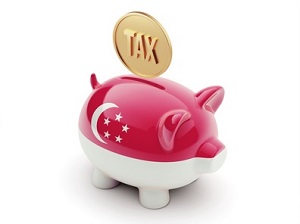Need guidance on the business entity type most suitable for your business?
Let our experts guide you.
Registering your business in Singapore? Here are 7 Singapore government agencies that you’ll need to interact with during the company registration process.
Registering a business in a foreign country can be a confusing process for new business owners, who may not be familiar with local incorporation processes.
In Singapore, you may find yourself needing to submit certain documents to different Singapore government agencies before getting the green light to register your business.
At the same time, you may not be aware of the many forms of assistance, both monetary and non-monetary, provided by Singapore government agencies to help get your business off the ground.
We’ve compiled the seven main Singapore government agencies that you’ll need to know when registering your business in Singapore. In alphabetical order, they are:

All businesses in Singapore are registered through the Accounting and Corporate Regulatory Authority (ACRA), which makes them the most familiar (and often the first) Singapore government agency that business owners encounter during the company incorporation process.
Company registration via ACRA’s online portal, Bizfile. Find out more about the incorporation process and requirements.
Besides facilitating the company registration process, ACRA also offers specialised advice to business owners based on entity type, legal information, as well as registration services for localised domains (com.sg or .sg) via the Singapore Network Information Centre (SGNIC).
The Central Provident Fund (CPF) is a pension fund that helps Singapore residents and permanent residents fund living costs upon retirement.
CPF contributions are made both by employee (via salary deduction), and employer at rates prescribed by the CPF Board.
The Employer’s section of the CPF official website offers an online portal to register companies and employees under CPF, as well as guides on employer obligations in respect to CPF funds and their constituents (such as the MediSave fund for healthcare expenses).

If you’re researching the potential of your business in Singapore, or just need more insider information about emerging industries in Singapore, the Singapore Economic Development Board (EDB) is the Singapore government agency you should consult.
EDB works closely with international businesses to seek out growth opportunities in Singapore and the region within various industries, as well as establish and deepen strategic activities within Singapore. It does so by offering a variety of investment and set-up schemes that help new businesses in Singapore hit the ground running.
EDB also assists individual investors who want to move to Singapore with the Global Investor Programme (GIP). This programme provides a fast-track route to apply and secure Singapore Permanent Residence (PR), which entitles them to benefits such as higher priority for loans and schooling.
Learn more about the Global Investor Programme (GIP).
 Formed from an amalgamation of two Singapore government agencies – International Enterprise (IE) and SPRING Singapore, Enterprise Singapore is a one-stop agency that provides enterprise support in the form of grants, loans and insurance, tax incentives, as well as non-financial assistance such as startup hubs and business toolkits.
Formed from an amalgamation of two Singapore government agencies – International Enterprise (IE) and SPRING Singapore, Enterprise Singapore is a one-stop agency that provides enterprise support in the form of grants, loans and insurance, tax incentives, as well as non-financial assistance such as startup hubs and business toolkits.
Enterprise Singapore works with trade associations and chambers to facilitate networking and knowledge transfer sessions for businesses. It also acts as Singapore’s national standards and accreditation body, which helps promote the quality and safety of Singapore-produced products and services.
 The Inland Revenue Authority of Singapore (IRAS) is the Singapore government agency that you’ll need to register all the Singapore tax requirements of your business with. These include:
The Inland Revenue Authority of Singapore (IRAS) is the Singapore government agency that you’ll need to register all the Singapore tax requirements of your business with. These include:
IRAS offers useful information on other forms of taxes for people who live and work in Singapore, such as taxes on property, shareholding, as well as clubs and charities. They also provide information on tax schemes such as double tax treaties, the Productivity and Innovation Credit scheme, and more.
Find out more about specific tax incentives by industry.
The go-to Singapore government agency for all things employment-related, you’ll need to liaise with the Singapore Ministry of Manpower (MOM) when applying for Singapore work visas such as:
MOM is also the authority in charge of applications for Dependent’s Pass and Long-Term Visit Passes for family members of Singapore work visa holders.
Besides handling Singapore work visa applications, MOM also has useful information and guides on employment practices, workplace safety and health requirements, as well as detailed statistics about employment in Singapore (such as employment rates, training facilities and blacklisted vendors).
Hiring local staff is a requirement for all businesses in Singapore. To ensure that the Singaporean workforce is up-to-date and adaptable to changes in the marketplace, the government has set up SkillsFuture Singapore (SSG), a Singapore government agency that provides and facilitates lifelong learning, training and development programmes for local employees.
Upon hiring any local staff, business owners need to consult SSG to register for the SkillsFuture Development Levy (SDL). SDL funds are channelled towards the Skills Development Fund, which supports workforce upgrading programmes. SDL funds also provide grants for employers to send their employees for accredited training courses in various specialties.
Businesses that have a training and development arm in Singapore can also register with SSG to be a SkillsFuture-certified training provider, which provides more opportunities for local employees to be in contact and network with new businesses.
SkillsFuture also provides new businesses the opportunity to offer internship and practical training programmes to university and college students in Singapore.
In addition to these seven Singapore government agencies, there are other field-specific referral authorities to know when registering your business in Singapore:
Let our experts guide you.
Hawksford's experienced and professional staff will be able to guide you through moving or setting-up your business in Singapore.
With our expertise, we can assist you in setting-up your business structure right the first time.
Reach out to Hawksford todayBack to top